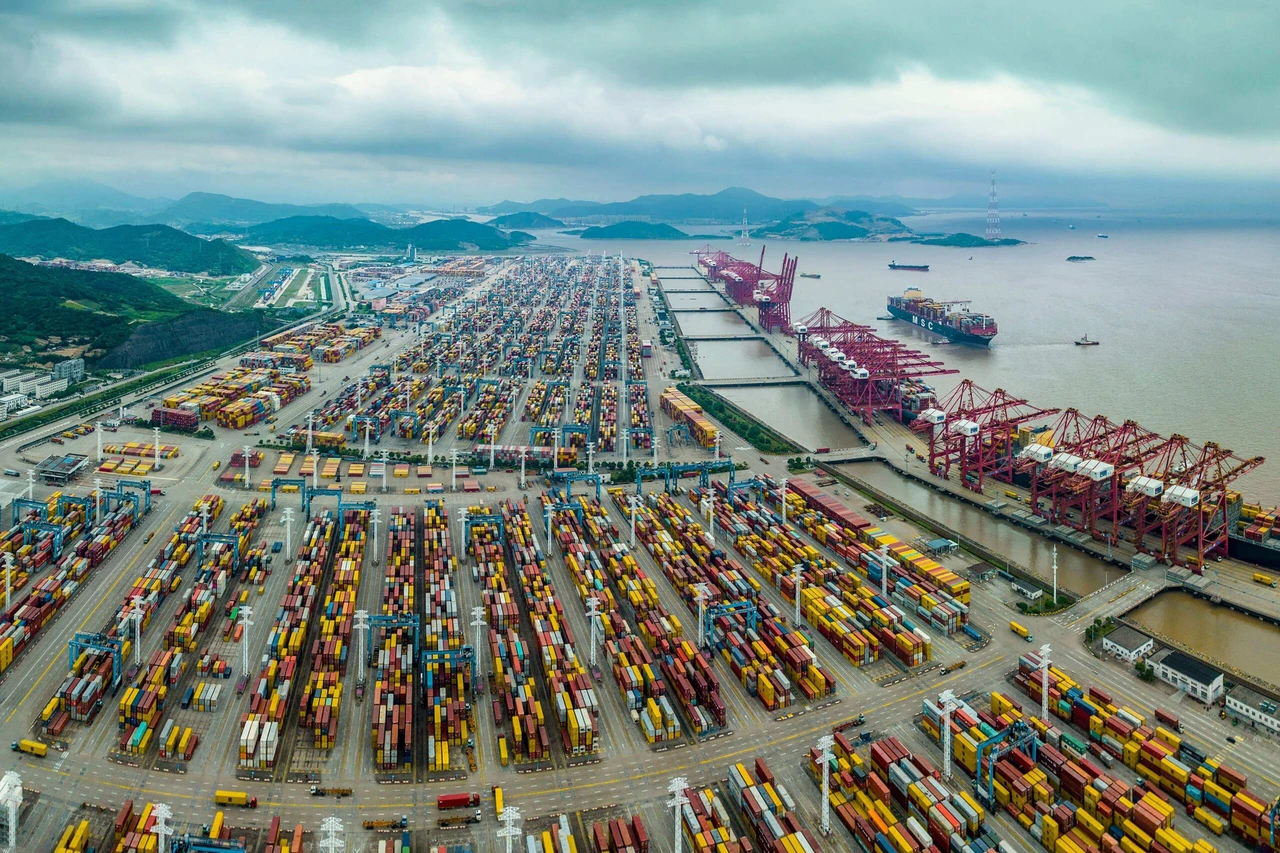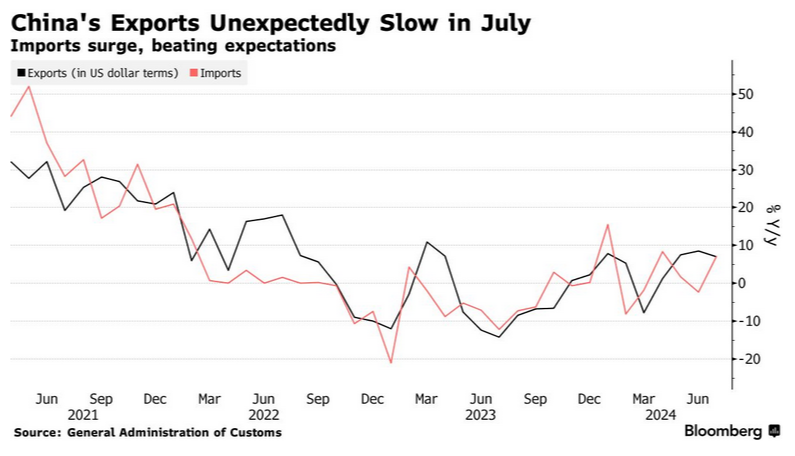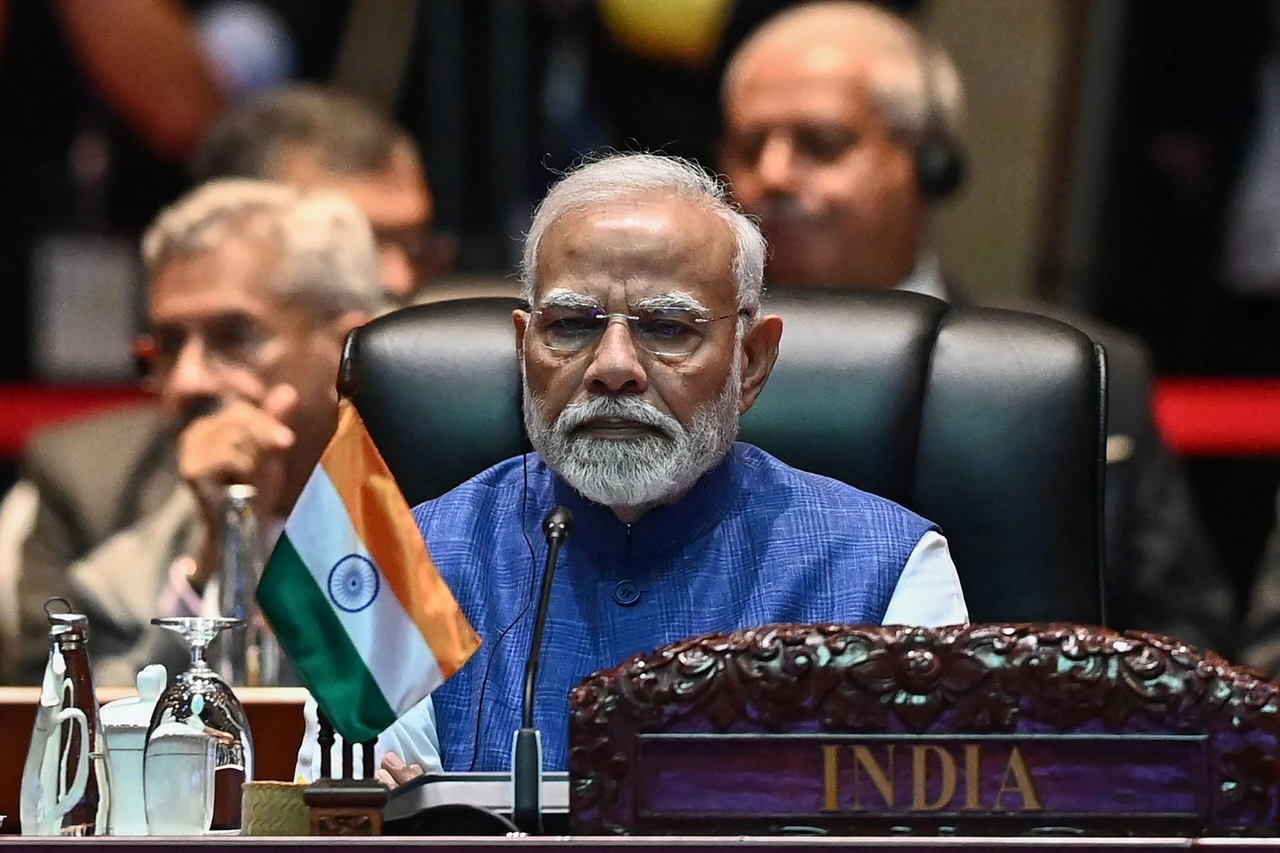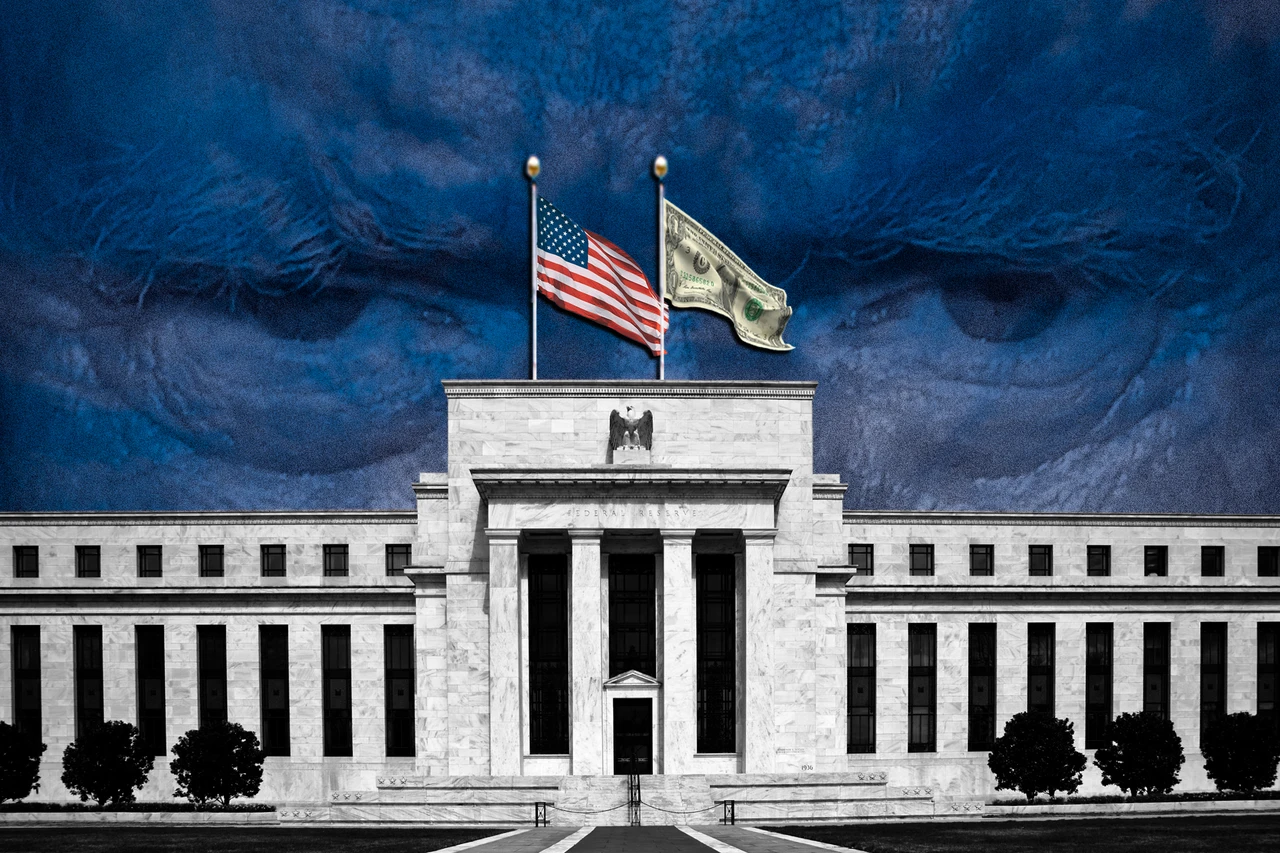China’s exports slow unexpectedly, signaling economic warning
 A trade port in China (Photo via AFP)
A trade port in China (Photo via AFP)
China’s exports growth unexpectedly slowed in July, signaling a cooling of global demand that has been propping up growth in the world’s second-biggest economy.
Slowing export growth
Decelerating exports suggest slowing global demand, which has been a key support this year for China’s economy as domestic consumers tighten their purse strings. This threatens the growth outlook for the rest of the year, following the slowest economic expansion in five quarters during the April-June period.
Exports rose 7% in July in dollar terms from a year earlier, falling short of economists’ median forecast of a 9.5% gain. Meanwhile, imports beat expectations and expanded 7.2%, narrowing the trade surplus to $84.65 billion from the previous month.
“Judging from the current situation, external demand is weakening,” said Xing Zhaopeng, senior China strategist at Australia & New Zealand Banking Group Ltd.
“Even though momentum is still strong in the electronics sector, the cooling of overall manufacturing activity will definitely affect trade.”
Regional export decline
Exports to Japan, the U.K., Russia, and Australia all contracted in July, reversing from expansion the month before, while the fall in shipments to Singapore deepened.
Falling export prices, which have persisted since mid-2023, likely also contributed to the slowdown in overseas shipments. Capital Economics estimates that export volumes softened slightly in July but remained close to record highs after accounting for changes in export prices and seasonality.
While the surge in imports may alleviate some concerns about weak domestic demand, the expansion was partly driven by short-term factors.

Xing noted that semiconductor makers likely rushed to front-load their equipment orders amid a potential tightening of U.S. curbs on chip exports, fueling a 15% surge in the product imports in July from a year ago. Imports of crude oil also climbed 8% as the government renewed import quotas for companies for the second half of the year.
Authorities’ recent call for faster use of government bonds to support infrastructure spending could boost construction activity and drive up demand for industrial commodities, according to Zichun Huang, China economist at Capital Economics.
Authorities’ recent call for faster use of government bonds to support infrastructure spending could boost construction activity and drive up demand for industrial commodities, according to Zichun Huang, China economist at Capital Economics.



